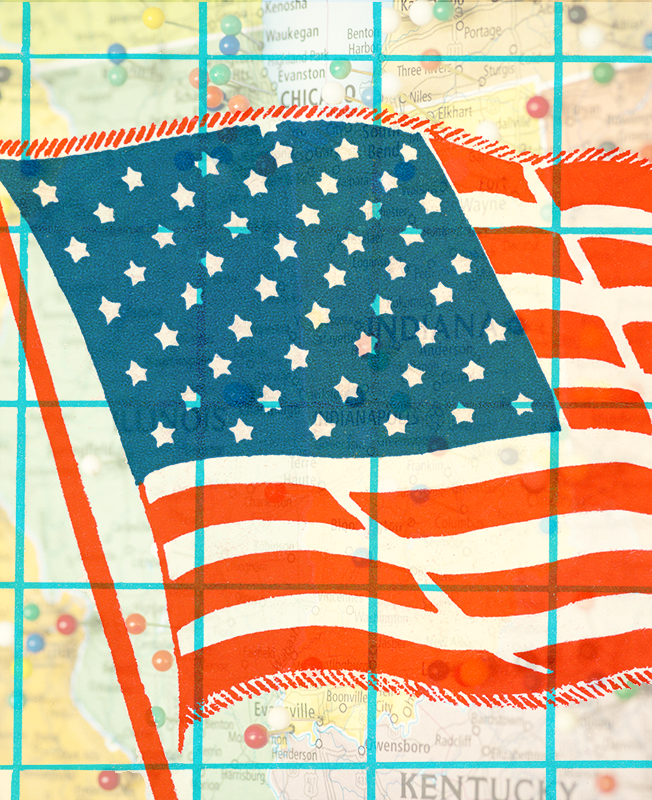Inspiration meets innovation at Brandweek, the ultimate marketing experience. Join industry luminaries, rising talent and strategic experts in Phoenix, Arizona this September 23–26 to assess challenges, develop solutions and create new pathways for growth. Register early to save.
If my Facebook newsfeed is any indication, the world of advertising is currently filled with hand-wringing, astonishment and in some cases, all-out despair. There are tears and complete shock that we seem to have gotten it all wrong.

Liz Ross
The results of the presidential election were shocking to many, especially with election forecasters putting Hillary Clinton's chance of winning at anywhere from 70 percent to as high as 99 percent. How they got it so wrong is a cautionary tale not just for pollsters, but for marketers as well.
The absolute No. 1 takeaway we should have tattooed on our collective forehead is that data, and the subsequent algorithms we use to parse that data, do not understand human emotion, especially the most intense forms—love, hate, anger, joy and loneliness.
Emotions, which define who we are as humans, do not fit on an election forecaster's data chart just as they cannot be summarized through an evaluation of our Amazon purchases or our online surfing behavior. Our digital selves only represent a piece (a small but growing piece) of who we are. While the digital footprint of those of us in cities is growing exponentially, we must not project our own behavior and patterns on those in other parts of the country.
My running joke is that people on the West Coast all believe the U.S. will soon have its toilet paper delivered by drone and people on the East Coast believe that everyone buys their toilet paper one roll at a time. Neither of these things is true, of course, and the reality is that most of the people in the middle of the country live different lives than those on the coasts. So if we want to know something or claim to know something about a person or a community, we sure as hell better be tuned in to their humanity and not just their statistics.
We are in advertising, one of the most amazing industries in the world—an industry of creative thinkers, eccentrics and people who challenge the status quo. We are also an industry filled with optimists, and no time in history have we needed optimism more than we do today.
So let's be the optimists we are, and use this moment of national tension as a learning opportunity. Here are four ideas for how marketers can do things differently as a result of what we learned from the election:
• Stop using the word "consumer." It is a pejorative term, indicating that there are mindless people waiting in the world for messages and information from brands. No one in the world simply consumes; they are complex humans who make choices every single day. Regarding them as actual people will make our marketing better.
• Get dirty. As someone who has lived on both coasts but spent the majority of my life in the middle of the country, the term "flyover states" is laughable, and unbelievably dangerous. Our biggest challenge is not the latest Facebook innovation or clients pulling their marketing spending in-house. The greatest threat to advertising agencies today is the disconnect between us and the people we are trying to convince to DO something. Unless we understand people at a deeply personal level, nothing we can do or say will move them to action. We must create work and ideas that they love. Not like, or simply notice, but love.
• Step out of the echo chamber. It is comforting to peruse the stream of information in our social media feeds and believe that everyone around us, at least those of us "in the know," are thinking the same way. We are herd animals, and we like knowing that the herd is moving together. Simply speaking, we have to push ourselves to people, places and conversations that make us uncomfortable. Get off the coasts, conduct research in different cities, have dinner with people who don't come from your background. It's all incredibly valuable and we would be wise to move beyond our comfort zone whenever possible.
• Spend less on paid media. In our industry, scarcity drives innovation. When we have less money, we have to work harder to create things that people actually love. Less paid media will require us to work harder to understand emotional nuance and really connect with real people—not just buy targets.
Data is comforting because it seems to deliver a level of certainty to our decisions that limits the possibility of failure. However, it's only an input, not a determinant. Apply gut-level knowledge and information based on conversations with real people at all costs.
Donald Trump beat all odds through abiding by this notion. No matter how you feel about the results of the election, we as marketers can take more away from the results than just a new president.
We must remember that behind our data points are people—imperfect humans making emotional decisions. If we rely on data in the absence of humanity, all of us are at risk of being very, very wrong.
Liz Ross is CEO of Periscope (@Periscope), an independent, Minneapolis-based ad agency.








